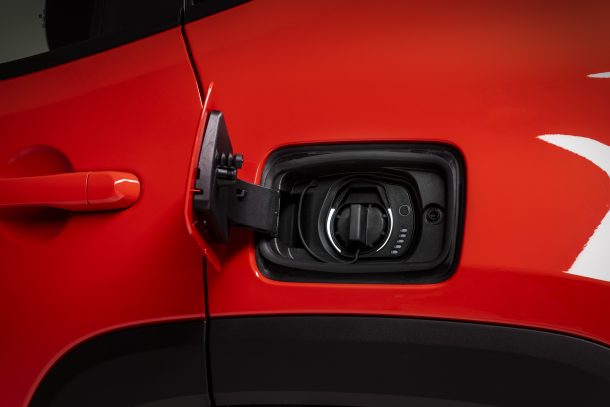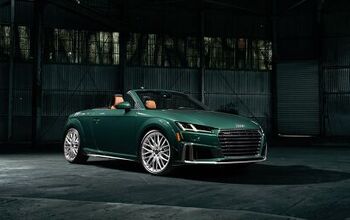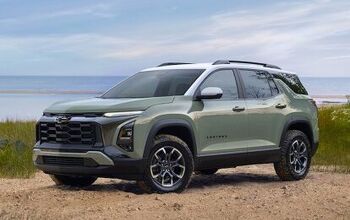Fiat Chrysler Looking to Muscle Into Chinese EV Market

Ram Rebels and Power Wagons are a tough fit for China’s cramped, heavily taxed new vehicle market, but “new energy” vehicles (electric cars) are not. With this in mind, Fiat Chrysler is aiming to put EVs in the hands of Chinese consumers through a potential joint venture.
Clearly seeing an avenue for growth — and a way to compensate for falling Jeep sales while challenging industry heavyweights like Volkswagen, GM, and Ford — FCA has entered talks with Taiwanese electronics company Foxconn, the automaker announced Friday.
In a statement, FCA said it is in discussion “with Hon Hai Precision Ind. Co., Ltd. (Foxconn) regarding the potential creation of an equal joint venture to develop and manufacture in China new generation battery electric vehicles and engage in the IoV (Internet of Vehicles) business.”
The potential pair-up, FCA said, would “bring together the capabilities of two established global leaders across the spectrum of automobile design, engineering and manufacturing and mobile software technology to focus on the growing battery electric vehicle market.”
The two parties are in the process of crafting a preliminary agreement.
Neither FCA nor its merger mate PSA Group are strangers to the Chinese market. FCA sells vehicles in the People’s Republic through its GAC Fiat Chrysler joint venture, while PSA offers vehicles through Dongfeng PSA. The country is seen as a ripe market for Jeep, but recent economic turmoil saw the off-road brand take a haircut; Jeep volume shrunk from over 200,000 vehicles in 2017 to just under 73,000 in 2019.
Thanks to excessive air pollution and a government with the ability to guide purchasing decisions with a heavy hand, China makes up roughly half of the world’s electric vehicle volume.
[Image: Fiat Chrysler Automobiles]

More by Steph Willems
Latest Car Reviews
Read moreLatest Product Reviews
Read moreRecent Comments
- 3SpeedAutomatic Elon took his eye off the ball while pre-occupied with "X" (formerly Twitter). Now, Tesla is coming around and biting him on the arse!!In the car business, you need to keep you finger on the pulse. Momentum will only carry you so far. If in doubt, think Lordstown and Fisker. He thinks technology will solve his problems. However, Telsa has moved from premier product to commodity with other manufacturers entering his exclusive domain. Time for Elon to fly back to Tesla HQ and come up with a long term plan. 🚗🚗🚗
- Irvingklaws Anymore seems I want a color that is not black, white, red, or some shade of silver/gray. Though I coveted them when I was younger, I also seem to have developed an aversion to all-black interiors. I have a deep negative reaction to any vehicle identifying as "triple black". Don't even get me started on black wheels...I'm not the only one. We're looking to replace my wife's silver CX-5 and one of her few non-negotiable prerequisites is that it be "a color" not in the aforementioned list. It's looking like a Cascade Green Forester with a light gray interior is in her future.
- Bd2 I dig it, Pure Pazaak!
- 3-On-The-Tree My C6 is all blacked out, the rims are matte black and interior all black with no contrast. I was never a fan of chrome rims and lots shiny chrome/silver trim etc.
- JMII Here are all the colors I've owned in order: tan, red, black, red, yellow, green, green, black, blue, silver, white, orange, red, blue and blue.So yeah I love colors...


































Comments
Join the conversation
"Thanks to excessive air pollution.." Don't think that is going away with more EV's. China will bring more Coal generating plants online to charge them. They need to do something other than trade tailpipes for smoke stacks. Not to mention the issues behind the curtain of EV construction - lithium mines, etc. Replacing fossil fuel vehicles with something that doesn't cause more/different problems is a huge challenge.
I did not get it: who is the second "established global leader"?